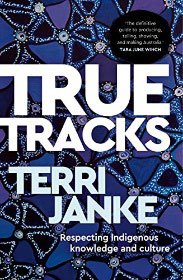Library Connect September 2024
You are here

This edition of Library Connect (PDF, 718 KB) has the usual listing of new books, a few articles for your interest and an invitation to browse some books which are ‘free to good home’. The books are good-quality discards not required in the library collection and are available now.
The library is staffed Mon–Fri 9.30–4.30 and Alex can also be contacted by email or phone (02 6250 9480) if you need assistance. The “click and collect” boxes in the Visitor Centre are still available for returning items, and Alex is very happy to leave items there for collection if that’s easier than visiting the library.
Past issues of Library Connect are available on the library catalogue site. https://library.dcceew.gov.au/cgi-bin/koha/opac-page.pl?page_id=22
For your interest
Historical Records of Australian Science
Volume 35, Number 2, 2024
Special Issue – History of Plant Pathology in Australasia
https://www.publish.csiro.au/hr
Despite the challenges of academic isolation and lack of communication, early plant pathologists flourished and made many world-first discoveries that assisted Australian farmers to overcome challenges in crop growth. In this special issue, published in cooperation with the Australasian Plant Pathology Society, specific attention is paid to describing some of the major plant diseases that affected agriculture during the nineteenth and early twentieth centuries.
Our Knowledge, Our Way guidelines
Our Knowledge Our Way in caring for Country: Indigenous-led approaches to strengthening and sharing our knowledge for land and sea management.
https://www.csiro.au/en/research/indigenous-science/indigenous-knowledge/our-knowledge-our-way
BioScience
Volume 74, Issue 5, May 2024, Pages 315–318
Scientists’ warning: six key points where biodiversity can improve climate change mitigation
Cássio Cardoso Pereira, et al.
https://doi.org/10.1093/biosci/biae035
Nature
Career column - 14 August 2024
Chatbots in science: What can ChatGPT do for you?
Milton Pividori spent a year and a half studying how best to use ChatGPT in research. Here, he highlights three key lessons.
By Milton Pividori
https://doi.org/10.1038/d41586-024-02630-z
arXiv
23 Jul 2024.
arXiv:2407.16551 [cs.DL]
Estimating global article processing charges paid to six publishers for open access between 2019 and 2023
Stefanie Haustein, Eric Schares, Juan Pablo Alperin, Madelaine Hare, Leigh-Ann Butler, Nina Schönfelder
https://doi.org/10.48550/arXiv.2407.16551
New additions to the collection
- True tracks: respecting Indigenous knowledge and culture / Terri Janke.
- That grass book: identifying grasses in southern Australia / Ellen Bennett.
- Botany of empire: plant worlds and the scientific legacies of colonialism / Banu Subramaniam.
- A field guide to Australian orchids: Epiphytes / David L. Jones.
- Guide to growing native plants in Tasmania / compiled by Veronica Thorp and edited by Ruth Mollison.
- Plant names explained: botanical terms and their meaning / [compiler Julia Brittain; editor Sue Gordon]
- The lives of seaweeds: a natural history of our planet's seaweeds & other algae / Julie A. Phillips.
- The lives of fungi: a natural history of our planet's decomposers / Britt A. Bunyard.
- NIASA best management practice guidelines / Nursery Industry Accreditation Scheme Australia
- EcoHort: guidelines for managing the environment: an environmental management system for the Australian nursery industry / editors John McDonald, Grant Telford and Chris O'Connor.
- National plant labelling guidelines / Greenlife Industry Australia.
- The science of plants: inside their secret world / senior editor, Helen Fewster.

